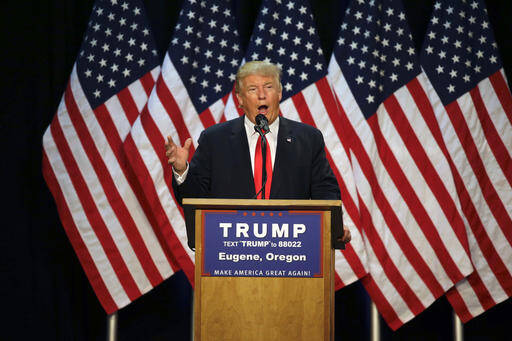A decade after Stephen Colbert coined the word, “truthiness” has conquered a presidential race. The Republican Donald J. Trump has set the standard in saying things that feel truthful to his supporters, regardless of whether they have any basis in facts. According to Mr. Trump, illegal immigration from Mexico is up (it isn’t), unemployment is as high as 42 percent (only if you count all retirees as wanting to get back to work) and the United States ranks “first” in spending on education but “last” on educational performance (wrong on both counts).
“There’s never been a presidential candidate like Donald Trump,” Glenn Kessler wrote in March in The Washington Post’s Fact Checker department, “someone so cavalier about the facts and so unwilling to ever admit error, even in the face of overwhelming evidence.” Fact Checker had by then awarded Mr. Trump its worst rating, “four Pinocchios,” 26 times for such matters as claiming not only to have opposed the Iraq War in 2003 but to have been “visited by people from the White House” trying to silence him.
Mr. Trump, writes The New Yorker’s Jill Lepore, is perfectly suited to a post-fact, or “truthy,” world that is not completely new but instead resembles the bullying of childhood (if I can beat you up, I must be right) and medieval trials (if you can float in a river, you must be a witch): “Trial by combat and trial by ordeal place judgment in the hands of God. Trial by jury places judgment in the hands of men. It requires a different sort of evidence: facts.”
The fact-free candidate is now poised to take the Republican presidential nomination, and some see his rise as an indictment of American journalism. But Chris Cillizza of The Washington Post does not accept the premise of a negligent press corps. “One of the most frequent complaints I hear,” he writes, “is that ‘the media doesn’t fact-check Donald Trump enough.” His response: “You are mistaking a lack of changed minds with a lack of fact-checking…. That is not a failure of fact-checking. It is the death of the belief in fact.”
Mr. Cillizza writes that the “fragmentation of the media” into ideological categories is partly to blame for the fact-free world, writing, “You can go through each day as a well(-ish)-informed person without ever hearing a sliver of news that contradicts what you already believe.”
The fear that we are separating ourselves into liberal and conservative camps is one reason for the recent uproar over how Facebook organizes its content. The website Gizmodo reported on allegations that Facebook workers have routinely kept conservative viewpoints out of the Trending section of the social-media website. In a statement to Gizmodo, Facebook says it is merely weeding out “junk or duplicate topics, hoaxes, or subjects with insufficient sources.”
In other words, Facebook is claiming the responsibilities of traditional print media. The New York Times columnist Jim Rutenberg recently chastised journalists for not taking Mr. Trump seriously until he had already vanquished almost all his rivals. Political journalism, he writes, “has too often lost sight of its primary directives in this election season: to help readers and viewers make sense of the presidential chaos; to reduce the confusion, not add to it.” Facebook’s news curators, as they are called inside the company, surely see themselves as reducing confusion. The trouble is that we may have reached the point where no journalism outlet is trusted enough by Americans across the ideological spectrum to serve as a fact-checker and gatekeeper of political news.
Still, I’m not sure that avoiding different political opinions is a completely new phenomenon. Even when daily newspapers could be found in most homes, plenty of readers ignored news stories and columns that seemed to challenge their beliefs. My guess is that discussions among family members and friends did more to prevent creeping truthiness than did authoritative news sources like the TV networks’ evening news. And I don’t know what journalists can do about people moving to neighborhoods where almost everyone votes for the same party.
When people are more skeptical about the fact-checkers than about the candidates themselves, it can be irresistible for people seeking political office to throw out dubious statistics and stretch the truth beyond recognition. Mr. Trump may simply be better at it than anyone else this year.








